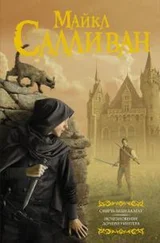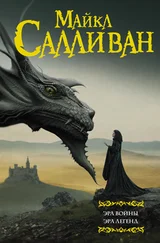J.L.—or Jael , as it sounds in my thoughts—tilts her head, and I try to pull back and shrink away, to retreat deep into that veiled place of quiet numbness, but it’s useless. That’s not how it works. Not in places like this.
She continues to frown at the stone, and I try not to resent her, for it’s been so long; there’s no way she could know that each moment she does so is excruciating for me. Not physically, of course, for the worms have taken care of that so long ago, and what little remains of my body is now dry and unfeeling. But being noticed has awakened something in me—an awareness I’d tucked away. Memories that, in being forgotten, I myself could forget. They’re fuzzy, indistinct, and smell of the burning forge, but they nag at me with such intensity that I know, without really knowing, that I’ve done something terrible. Something I don’t want anyone—even myself—to remember.
“Who are you?” Jael crouches before me, and even if I wanted to, I couldn’t tell her. I’m nothing but a prickle on her spine, a breath of a whisper on the back of her neck that, if she was paying attention to it (and if she was the superstitious sort) might cause her to shiver, pick up her belongings, and walk away, leaving me alone again to be forgotten.
But instead, she pushes away the overgrown weeds and squints at my pockmarked stone, and I feel myself awaken more as she does. Please, stop. Just let me be forgotten.
Back when I was stronger, when the scandal of it all ensured I was well remembered by the living, I’d pulled and twisted and teased the vines, shaping them to cover the words of the stone. Drops of dew that slipped from them would run across the letters, ruining them beyond legibility. I’ve always been good with plants, able to bend them gently to my will, and my work must have paid off, for now, the woman can only squint at the marker, her lips moving as she tries to decipher the lines.
“Hmm. This whole section is missing from the online records. I’m going to have to ask Hugh about you,” she mutters, making note of the location on her tablet. Then she holds up the device, and it lets out a click. Understanding travels to me along that impossible thread of consciousness through which she’s awakened my existence: it’s a photograph. “Maybe he’ll let me dig through the physical records, see if I can figure out who you were.”
Please don’t . And this time, as I’m more firmly solidified in her mind, I can almost hear myself say it. I can almost feel my lips move in protest.
Jael packs her tablet into her bag and rises to her feet, releasing bent-up stalks, which no longer shield me as well as I’d like.
* * *
Hugh must be the newest groundskeeper, for Jael isn’t gone long before I sense my self-awareness increase. Two people now, rather than one, are thinking of me, speaking of me, wondering about me. Perhaps they’ve already discovered my name. Perhaps it still means something around here.
Why me? Why not one of the others around me in this desolate place? I can sense them now, sleeping peacefully beneath the soil, undisturbed by undesired memories. I envy them.
The shame and the loss are more pronounced now, more sharp edged, and a single word echoes in my consciousness: betrayer .
* * *
Days pass, and I know I remain on Jael’s mind, because I still can find no rest. I’m unable to wander far from the lonely stone in the shade-darkened copse, but I’m more aware of those around me. Elsewhere within our iron-fenced boundaries, others roam.
There’s a general from the war buried on the property’s northern edge who has been kept vibrant and active by his notoriety and by the iron placard that stands before his elaborate tomb. Years ago, he used to ride through the grounds by night on a stallion, his presence made brilliant white—nearly corporeal—by the strength of his former enemies’ nightmares. But they are gone now, taking with them the memories that gave him such strength. Now it’s their stories, passed down in books and letters and the lectures of historians, that hold him here.
The eastern acres are the newest, the overturned soil the freshest. Throughout the seasons, the living will come, bearing their gifts of forget-me-nots and candles, of stuffed bears and helium-filled balloons. The recipients welcome them with gentle breezes that make the hot sun seem less harsh on their heads and comforts whispered directly into their loved ones’ hearts. They want to be remembered; for them it’s a joy. I watch from a distance in envy.
* * *
Jael visits again, and this time she speaks my name.
“Good morning, Eliza.”
Beyond time and place, I hear the echo of all those who have spoken that name before. I wish I had hands and ears so that I might block them out somehow, but they come full force, each with another measure of pain.
Father, his voice as strong as his hands—which built his house, his farm, his fences—speaking my name in anger. Mother, quiet and yet just as fearsome. Brother . . .
Brother.
My brother, the blacksmith whose shadow darkened his hot, smoke-filled shop. Whose voice, even now, is a red-hot poker. His name is out of reach, yet when he speaks mine, it’s with such sharp accusation, such disappointment and hurt, that I know he’s the one I’ve betrayed.
Please, stop. I can’t bear to remember. I’m so sorry, for whatever I did.
Jael freezes, and I wonder if she’s heard me, but she shakes her head and goes on. “Eliza Forsythe. 1865 to 1885. So young. But why are you buried here—alone? You know, there’s a vault across town with the same surname on it. It’s a big, elaborate thing from around that same era. But if they were your family, why weren’t you buried with them? What happened to you, Eliza?”
Please. I don’t want to know what I’ve done.
Jael sighs, lowers herself to the ground, and takes out her tablet, fiddling with the stylus for a few moments before speaking again. “I sometimes wish I’d lived back then, back when this part of the country was still so wild. You read about the close, tight-knit families from those times, with fathers training up sons in their trades and mothers teaching their daughters how to cook and sew, and everyone sitting together for big Sunday dinners. Nowadays, what do we have?” She holds up the tablet, as if I know what it is, what it does, what it means. And yet somehow, I do.
On the screen is an email from someone named Tyson. I linger over her shoulder, reading the message as she continues speaking.
“My brother. He’s a mess. Has been since our parents died, though that’s no excuse. Claims he needs a thousand dollars by next week so he can buy a suit for an interview with some big company. Except I called the place and— surprise —they claim they don’t have any open positions right now and definitely aren’t interviewing. I don’t know if he wants the cash for drugs or one of his other vices, but he’s family. I’m getting paid enough to restore these old cemeteries, so he knows I’m good for it, so . . . I mean, I’d just hate to think what he’d do if he was really desperate.” She tucks the tablet away and rises to her feet, brushing off her jeans. “But never mind all that. We gotta figure out what happened to you, Eliza. I think I’ll swing by the library on my way to the apartment.”
I try to follow, to tell her to stop. If I were stronger, I could manifest myself like the haunts in old stories, to frighten her away from this place and this quest.
The thought sends a shudder through me. I don’t want to frighten her, just to rest.
As it is, I can only flow, like an errant breeze, around her. When my attempts at tugging her hair go unnoticed, I slip into her bag with the tablet, and by siphoning from its power source, I can follow her to the cemetery’s main path. Follow, but nothing more. The battery dies at the wide iron gate, and when she reaches into her bag to search for her keys—the mystery of my forgotten existence pushed briefly from her mind—her fingers meet a key fob that holds an icy chill, but nothing more.
Читать дальше
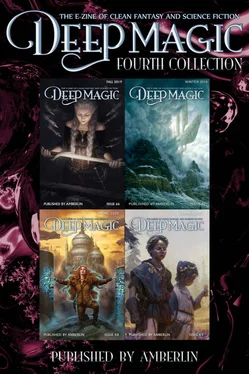
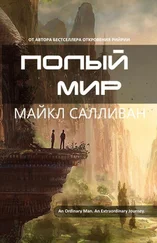
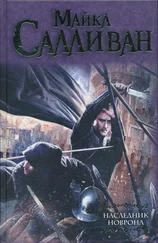
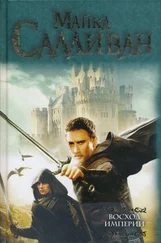
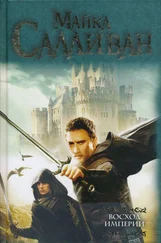
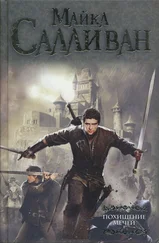
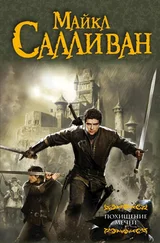
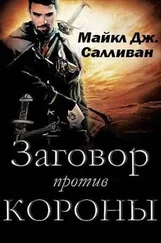
![Майкл Салливан - Эра войны. Эра легенд [3-я и 4-я книги серии] [сборник litres]](/books/388627/majkl-sallivan-era-vojny-era-legend-3-ya-i-4-thumb.webp)
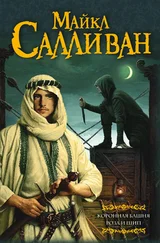
![Майкл Салливан - Смерть леди Далгат. Исчезновение дочери Уинтера [сборник]](/books/399107/majkl-sallivan-smert-ledi-dalgat-ischeznovenie-do-thumb.webp)
